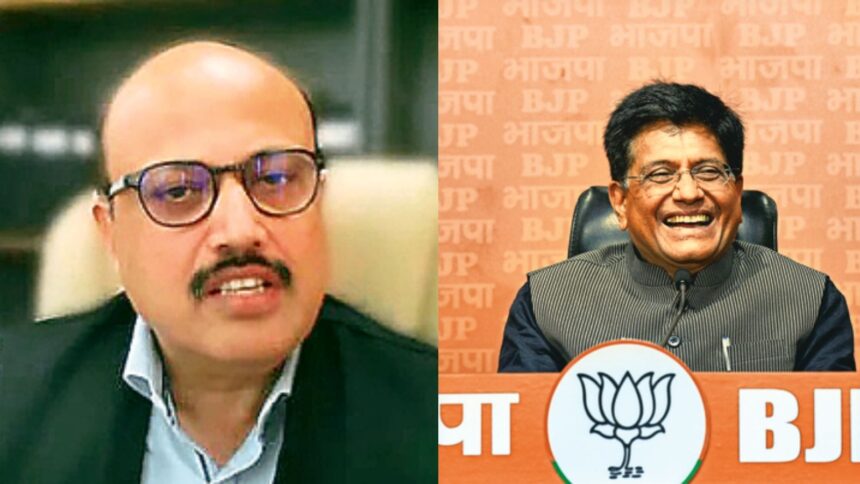TRADE TALKS with Western countries, particularly, the United States and the United Kingdom, have gathered pace with a negotiating team headed to Washington DC next week to push through an interim deal, and Commerce Minister Piyush Goyal set to visit the UK to iron out the remaining differences.
Indian negotiators preparing for a three-day visit beginning April 23 to the US to draw up a “realistic 90-day roadmap” to clinch an interim agreement covering a range of issues, including tariffs, non-tariff barriers, and services, has learned.
“The Terms of Reference (ToR) have been finalised and will be further developed with the aim of moving closer to a trade deal within 90 days reciprocal tariffs pause window. Nineteen chapters are under negotiation, covering areas such as tariffs, non-tariff barriers, rules of origin, and customs facilitation,” a senior government official said Saturday.
The visit, scheduled to commence on April 23, is significant with the trade war escalating between the US and China and both powers pursuing their own set of trade deals. While the US is negotiating with India, Japan, and South Korea, China is pushing ahead with agreements involving Vietnam, Malaysia, and Cambodia — all countries that have received significant investment from China in the last few years.
With the ‘rules of origin’ featuring early in the negotiations with India, the US could be addressing its concerns emerging from the last trade war launched under US President ’s first administration. Chinese goods had landed on US shores despite tariffs on China since products got rerouted via Vietnam, Mexico and other countries, making US tariffs on China counterproductive.
‘Rules of origin’ are the criteria needed to determine the national source of a product and has been a tough area of negotiations for India too with other trade partners such as those in the ASEAN region primarily because of the risk of Chinese products getting re-routed to India, and benefiting from the concessions given to the ASEAN countries under the free trade agreement.
“Depending on timing and priorities, deals on goods and services are being pursued. The modalities and scheduling of negotiations will be firmed up accordingly. We are also assessing US expectations in agriculture and the non-tariff barriers currently under discussion,” the official said.
THE TRUMP tariffs, and the radical changes in US trade policy, have prompted India to push through trade agreements with not just the US, but also with the UK and the European Union. The 90-day tariff pause is being used to at least conclude an interim deal with the US.
The Indian delegation will be led by India’s Chief Negotiator Rajesh Agrawal, who is an Additional Secretary in the Department of Commerce. Agrawal was appointed as the next Commerce Secretary on April 18 and will take charge on October 1.
Notably, agriculture has also emerged as a key focus area following comments last month by US Secretary of Commerce Howard Lutnick, who said India must “open up” its agriculture sector to US products. He said the US would be open to “accepting quotas and limits” where sensitivities exist.
The Indian Express reported last month that India and the US will discuss market access for goods and digital trade in the first tranche of negotiations. Key US demands—particularly in the automobile, whisky, and agriculture sectors—will be addressed. Labour, environment, and government procurement are expected to feature in the second tranche.
On digital trade, India expects Washington to push for greater access to data, challenging India’s strict data localisation norms, which require personal data to be stored within Indian borders. Disagreements over data localisation were a major source of friction during Donald Trump’s first term.
India has resisted shifting its stance on data localisation in plurilateral negotiations at the WTO and tightened its rules further in April 2018, when the Reserve Bank of India (RBI) mandated that payment system providers such as Mastercard and Visa store Indian users’ data domestically.
Meanwhile, Indian industry is urging the government to fast-track a deal, as tariff uncertainty is already impacting manufacturing and services.
After small-scale steel product manufacturers warned of potential losses totalling $5 billion, top IT firms reported weaker-than-expected Q4 FY25 results, citing reduced discretionary spending in the US. Federal Reserve Chair Jerome Powell also remarked last week that recent shifts in US trade policy are likely to cause “at least a temporary” rise in and “delays in investment decisions”.








